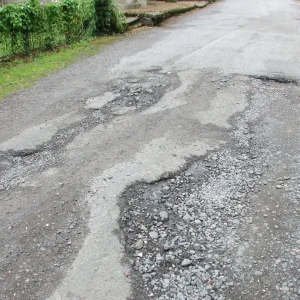The City of London Corporation has banned the purchase or lease of diesel vehicles within its fleet in a bid to reduce public exposure to air pollution and help the capital meet stringent air quality targets.
Following in the footsteps of Camden Council, which introduced a ban earlier in the year, the 300-strong fleet will be replaced with petrol and hybrid alternatives, once current cycles have come to an end. Only a few diesel vehicles will remain, such as tractors, where there’s an operational necessity and no other fuel type available.
Chris Bell, head of procurement, said: “The City Corporation takes air quality extremely seriously. We are taking responsibility for the cleanliness of our fleet and encouraging the use of low- and zero-emission vehicles with our partners,” he said.
Across the UK as many as 40,000 deaths a year are attributed to outdoor air pollution, 9400 of which are linked to premature deaths in the capital. The Institute for Public Policy Research, which is urging London mayor Sadiq Khan to ban all diesels in London, says road transport accounts for almost 15% of the total emissions in London.
Camden, the first council to ban the purchase of diesel, now operates 284 LPG and petrol-powered cars and vans, 120 vehicles running on compressed biomethane gas (the council has its own refilling station), 18 hybrids and one electric car.
Like the City of London Corporation, the authority also runs diesel vehicles (134 in total) where there isn’t a sufficient greener alternative. Although currently running a few electric and hybrids, the increase in purchase price prevents Camden Council from buying more.
“Greener vehicles carry an initial premium. Bio-methane is our preferred fuel source and we have considered the ‘source-to-tank’ regime as it is more environmentally friendly and delivers certified bio-methane,” a council spokesperson told BusinessCar
Rosemary Davenport, a spokesperson for London Councils, which represents the 32 London boroughs and the City of Londonm, said: “Poor air quality is a killer in London and it is vital that more is done. The phasing out of diesel vehicles is yet another step in the right direction and demonstrates the proactive measures boroughs are putting in place to tackle the issue.”
The Society of Motor Manufacturers and Traders, however, believes diesel will still have a place on many fleets for the foreseeable future.
“Manufacturers invest heavily in developing low-emission technologies of all types to give consumers, businesses and public authorities choice,” said Mike Hawes, chief executive at the SMMT. “Buses, cars and commercial vehicles on sale today have never been cleaner or safer. Each serves a different need, and the biggest air quality gains will come by encouraging uptake of these latest, lowest-emission vehicles, regardless of fuel type.”
Other plans potentially in the pipeline to combat air pollution, called on by the London Assembly, include the introduction of the city’s Ultra-Low Emission Zone a year earlier than planned in 2017 and making the ‘T-Charge’ – which, from next year if approved, would charge users of ‘dirty’ vehicles an additional £10 a day to go into central London – applicable to vehicles fitted with Euro 5 and older engines, rather than the proposed Euro 4 standard.





